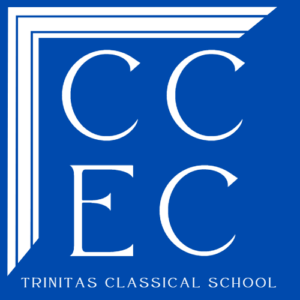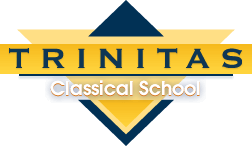 In C.S. Lewis’s The Horse and His Boy, a terrifying chase by lions ends with two horses and two children barely escaping across a narrow inlet of the sea. As the four gather their wits, Bree, a talking Narnian horse, lays out the plan: “And now that we’ve got the water between us and those dreadful animals, what about you two humans taking off our saddles and our all having a rest and hearing one another’s stories.” Bree asks one of the humans to speak first, and the narrator tells us: “Aravis immediately began, sitting quite still and using a rather different tone and style from her usual one. For in Calormen, story-telling (whether the stories are true or made up) is a thing you’re taught, just as English boys and girls are taught essay writing. The difference is that people want to hear the stories, whereas I never heard of anyone who wanted to read the essays.”*
In C.S. Lewis’s The Horse and His Boy, a terrifying chase by lions ends with two horses and two children barely escaping across a narrow inlet of the sea. As the four gather their wits, Bree, a talking Narnian horse, lays out the plan: “And now that we’ve got the water between us and those dreadful animals, what about you two humans taking off our saddles and our all having a rest and hearing one another’s stories.” Bree asks one of the humans to speak first, and the narrator tells us: “Aravis immediately began, sitting quite still and using a rather different tone and style from her usual one. For in Calormen, story-telling (whether the stories are true or made up) is a thing you’re taught, just as English boys and girls are taught essay writing. The difference is that people want to hear the stories, whereas I never heard of anyone who wanted to read the essays.”*
It’s a humorous comparison of genres but one that might make those of us in classical education a little defensive. A philosopher by training, I feel the need to explain, “Well, joking aside, Lewis actually thought essays were important and interesting too…” We shouldn’t be quick to set aside Lewis’s primary point though: stories are powerful. They grab our attention, engage the imagination, arouse emotions, direct passions, shape beliefs. In short, they form us. While it is important to train students in logic and analytical reading and writing, we have to admit that stories are important too—probably more important. As Jennifer Holberg writes in Nourishing Narratives: The Power of Story to Shape our Faith, “[N]o matter what one’s childhood—even if one was not or is not really much of a reader—we are all profoundly story-shaped people. We live in a world that, for better or worse, most often seems to process through narrative, not facts.”** Trinitas is a school built on stories—on God’s story, and on the myriad stories that point us to Him.
Who are the storytellers in your child’s life? In your own life? What stories are they telling? How loud are their voices? At Trinitas, we are committed to sharing stories that nourish souls. We do this across the curriculum and beyond it, with students and with families. The list of contexts for such nourishing narratives is long—including our classes in literature and composition, Latin, Greek, Bible, and history, Speech Meet, Thoughtful Reader Book Club, Reader’s Theater, and puppet plays—but a few recent examples stand out.
As part of our grant from the Calvin Institute of Christian Worship last year, we were blessed to spend time with Jennifer Holberg, the author of Nourishing Narratives mentioned above. Professor Holberg spoke with our staff and parents last spring and returned to join us for an engaging book club conversation this fall. In both contexts, she helped us to consider “how the larger story to which we give allegiance, the gospel—the overarching story of God’s good creation; humanity’s fall; and our redemption through the life, death, and resurrection of Jesus Christ—interacts with the smaller stories in which we participate.”*** During a conversation about how we live in an age in which we are all becoming skimmers and scrollers, it was heartwarming to hear Professor Holberg talk about some of her teaching practices, including regularly taking her literature and writing students outside to teach them techniques of “slow looking”—techniques for paying better attention, for looking closely, listening carefully, and considering deeply.
Reading, writing, and discussing are not the only modes for sharing stories, and we are continually looking for additional ways to bring good stories to life. Last month, a traveling theater group from Grand Valley State University performed a retelling of George Orwell’s Animal Farm for our third through eighth graders. Instead of a farm, the setting was a high school (with uniforms very much like our own!). Instead of an animal-led revolt, the rebellion was student led. Of course, that rebellion did not turn out any better than Orwell’s original, and the lessons about the tendency of power to corrupt in any setting were clear. What perhaps most impressed me was the questions our students asked the actors after the show. Students as young as third grade asked, “Why did the rulers keep changing the rules?” “How can some students be ‘more equal’ than others?” “Why did the director choose to set the story in a school instead of a farm?” and “Why did she choose to have the sidekick, rather than the main villain, deface a sign [a substitute for the windmill in the original]?” Our older students will be reading Orwell’s novella later in the year, and the third and fourth graders recently completed a writing unit on variation in storytelling in which they created their own retellings of various fables and myths. The GVSU performance provided a robust preparation for more deeply engaging our curriculum, and it fueled excitement about students’ own stories.
As a development from our grant year, we have also begun to incorporate scripture enactment into the life of the school. We already have a strong focus on Bible memory in order to “hide God’s word in our hearts;” scripture enactment enables students to participate more fully in the oral storytelling tradition of our faith. Jeff and Karen Barker, former Northwestern College theater professors who have had a profound impact on drama ministries, were chapel guests recently and stayed for much of the day talking with several of us about making God’s word come alive; they also worked with our fifth through eighth graders on a presentation of the parable of the unmerciful servant. I enjoyed observing one of the work sessions. The discussion of how to present the story in action led to all sorts of deep questions: “Shouldn’t the servant be relieved and excited when his debt is forgiven?” “What do we think he should do? What does he actually do?” “What does the contrast of the king’s open hand and the servant’s hand on the throat of his own debtor tell us?” “Why is the guard so upset when he witnesses this?” “God forgives us— ‘His mercies are new every morning’—are we always forgiving?” The older students later presented their parable enactment to students in grades K-4 and similar discussions were had. The younger students then had the opportunity to use their ears and eyes, voices and bodies to bring the words of Psalm 98 to life using different vocal inflections and hand and arm motions.
We also hope each of our families will engage in scripture storytelling at home using our second annual Advent devotional guide, “Imagining the Incarnation.” Written by one of our Latin teachers, it contains Old and New Testament scripture and poems to read aloud, songs to sing, and ideas for further engaging the imagination by writing, drawing, painting, building, dancing, and enacting together. Students are also working in multi-age groups during Friday Focus time on a set of beautiful ornaments with images designed by our Parent Service Fellowship chair to connect the Old and New Testament verses and to help us more fully imagine the wonder of the Incarnation.
At Trinitas, we believe that the more we share God’s stories, the more they belong to us and the more we belong to them. This Advent—this season of storytelling—we encourage you to practice attention, to look closely, to listen carefully, to consider deeply. We invite you to join us in pausing, gathering our wits, “taking off our saddles and our all having a rest and hearing one another’s stories.”
*C.S. Lewis, The Horse and His Boy (New York: Harper Trophy, 1954), 33-34, 35.
**Jennifer Holberg, Nourishing Narratives: The Power of Story to Shape Our Faith (Downers Grove:
InterVarsity Press, 2023), 3.
*** Holberg, Nourishing Narratives, 5.
©ALP
